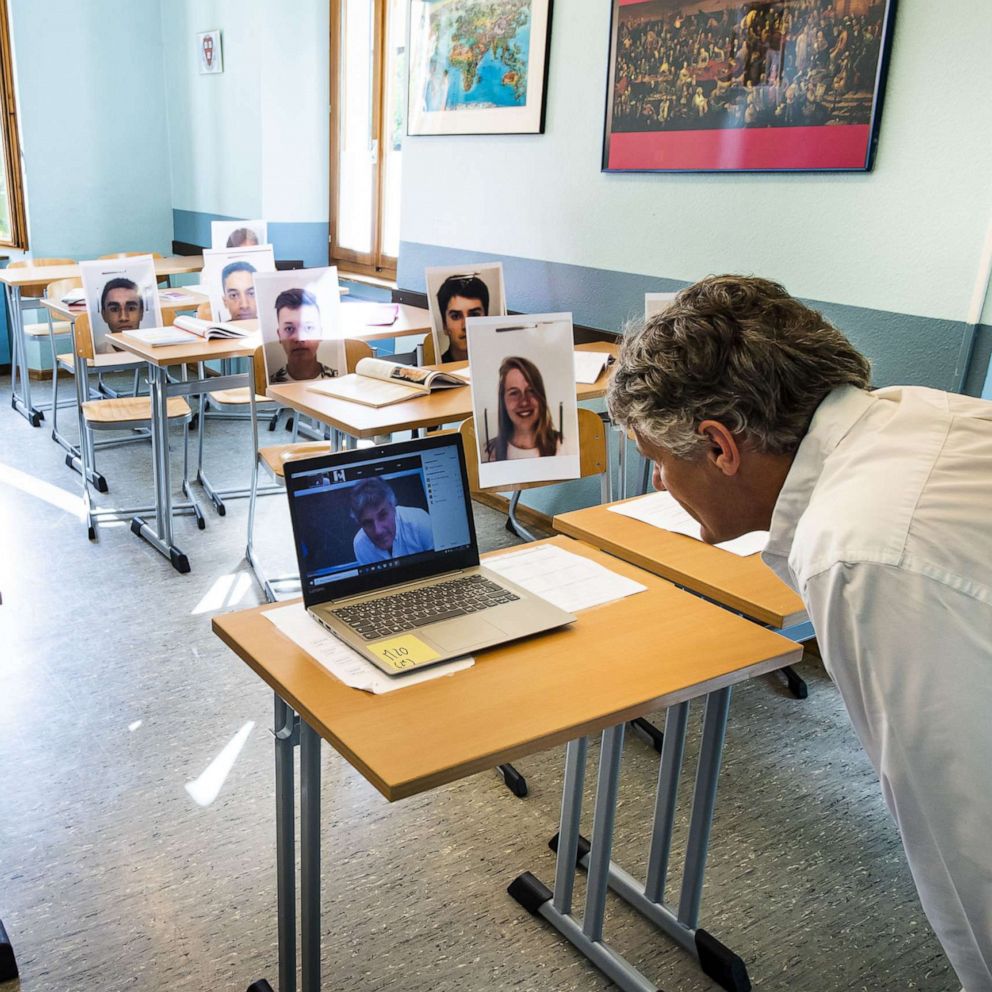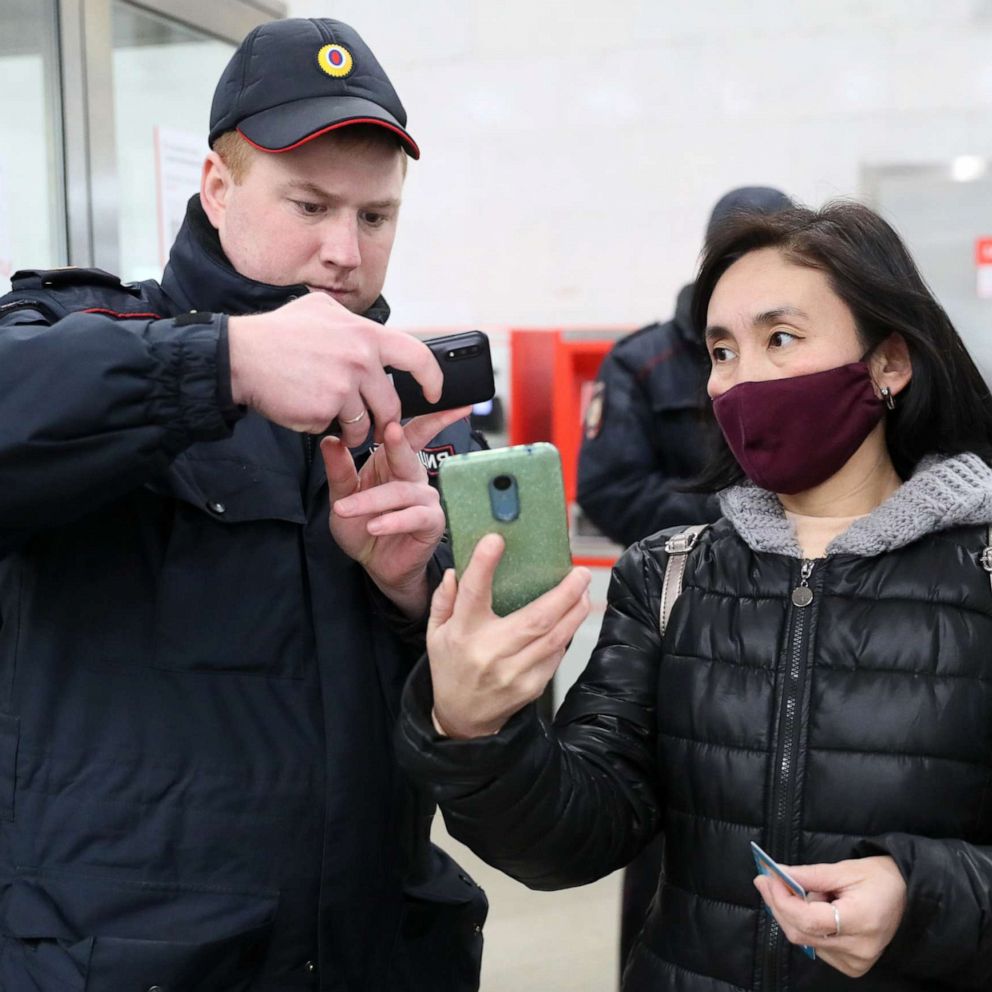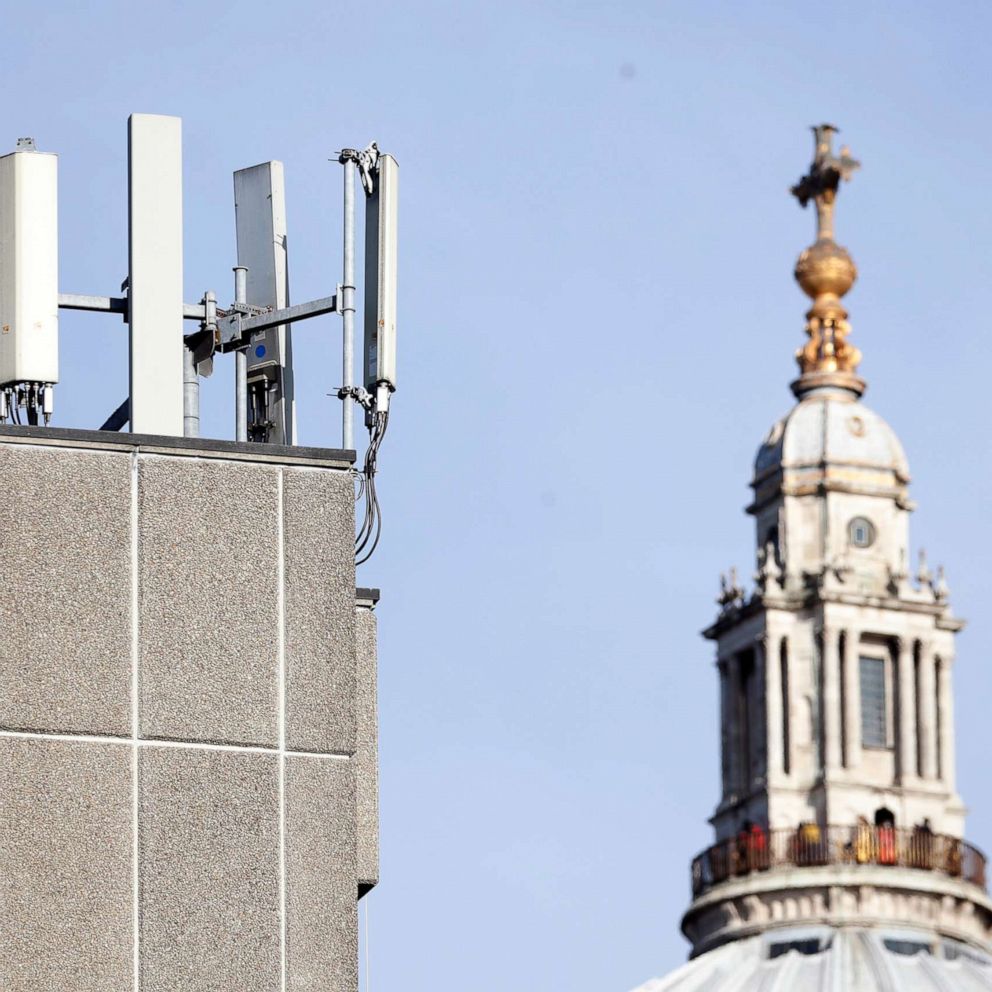South Korea slowly goes back to normal as schools reopen, sports games begin
Schools resume offline classes gradually starting next week.
SEOUL, South Korea -- South Korea has officially begun transition into 'distancing in daily life' measures after 45 days of implementing strict 'social distancing' but fears remain whether new rules are enough to keep people safe.
The country, once reaching 813 confirmed COVID-19 patients in a day on Feb. 28, has flattened the curve to less than 10 confirmed patients over the last four consecutive days.
"The daily life we enjoy today is a result of our citizens abiding by social distancing rules and maintaining personal hygiene," Deputy Director Kwon Jun-wook of Korean CDC said in a briefing Thursday. "We need to keep this up and control a sporadic outbreak [of COVID-19]."
People are back to their daily routines while adhering to basic precautionary guidelines. The five key rules advised by the government include staying home for three to four days when sick, hand-washing, and wearing masks in crowded areas.
Public facilities such as schools, libraries and museums plan to open in phases, placing their own social distancing measures. The National Museum of Korea plans to open up to only 300 people each day. Those who made online reservations will have their temperature checked and must wear masks before entering the museum, standing six feet apart from each other. The measures are similar with government-run museums and palaces, mostly limiting the number of people entering buildings at the same time.
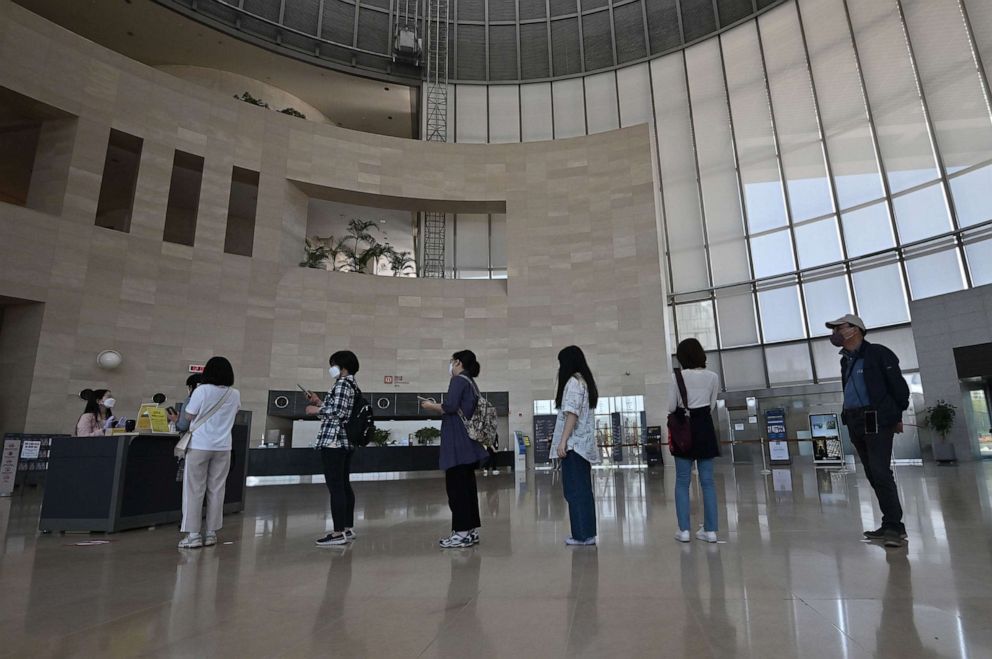
Businesses reopening
Although still recommending people to maintain distance between each another, the government is relaxing strong social distancing measures at gatherings and events assuming disinfection guidelines are followed. Concert venues and fitness centers are slowly opening doors. The majority of them closed as per the government's recommendation.
But some business owners say the guidelines are not compulsory, therefore giving little motivation to follow.
"We tell the members who come to exercise that they need to wear masks but many take them off while they run the treadmill or drink water," Choi Eun-ho of Core and Body Pilates told ABC News. "But the center cannot force people to wear masks, it's no law."
Restaurants and cafes were overflowing with people during lunch time in central Seoul on Thursday. It was not hard to find people standing or sitting close to each other at popular restaurants -- contradicting government advice to keep an arm's length distance from each other.
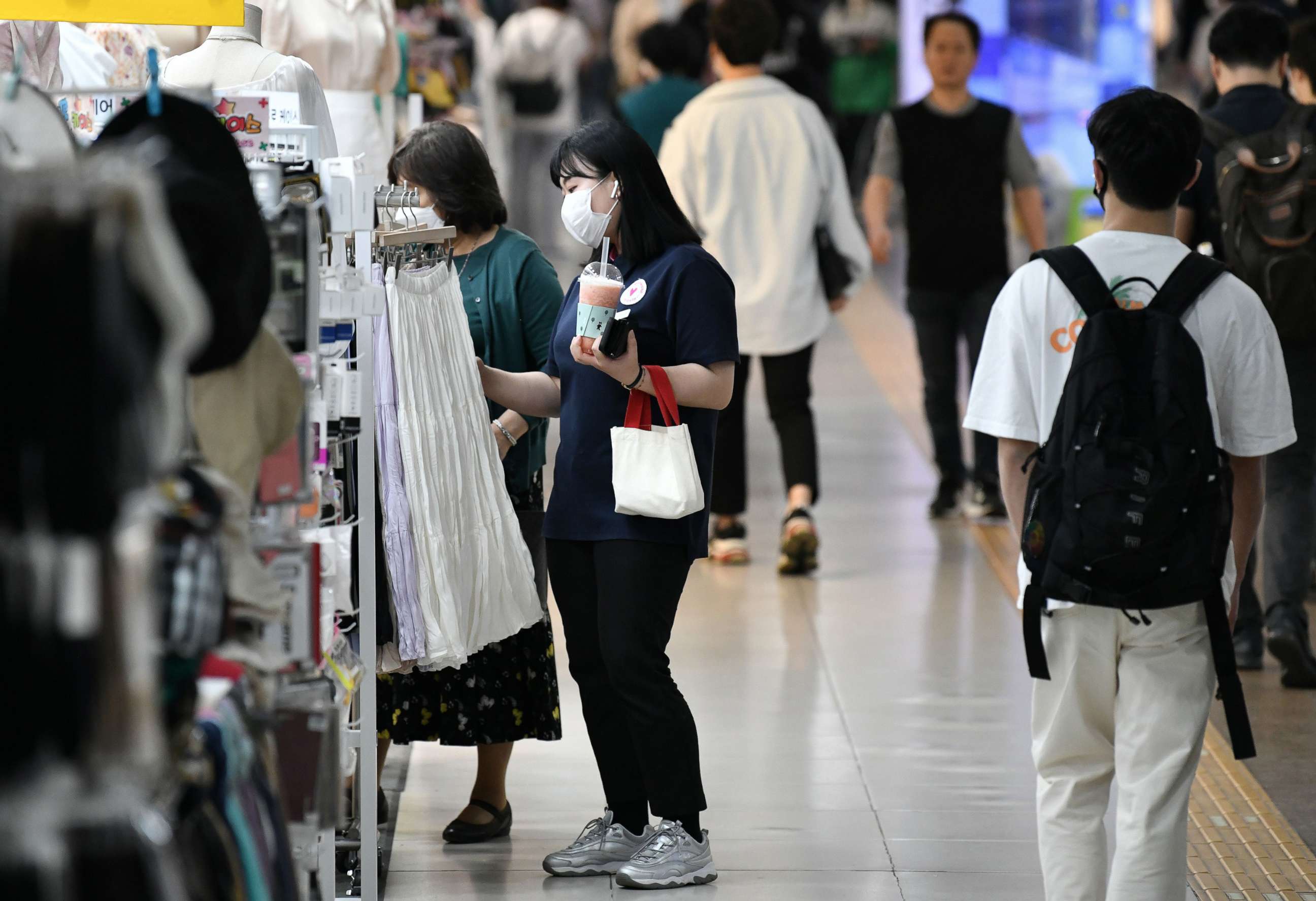
"There have been reports that social distancing is difficult or confusing to implement in daily life while using facilities or businesses, the government will receive ideas and revise accordingly," Yoon Tae-ho, a senior Health Ministry official said in a briefing Thursday.
Schools resume classes gradually next week
Nearly 5.45 million students are finally going back to school in stages after more than two months of at-home online classes. High school seniors are the first to resume classes on May 13. First, second, ninth, and eleventh grade students will follow a week after. Third, fourth, eighth and tenth grade students resume on May 27 and the rest will be back on the first week of June. The Education Ministry has recommended each school to operate in a flexible manner to maintain maximum distance between students, for example, starting classes at different times.
All schools are required to check body temperatures of students, teachers and staff. Everyone must wear face masks during classes and eat separately with partitions in between seats in the cafeteria. Desks in classrooms must be rearranged to maximize distance between desks. However, some parents of younger students are skeptical.
"I am doubtful whether my child could bear to wear a face mask for more than four hours at school. Even under my guidance, my kid tries to put off the mask as he thinks it is frustrating. Also, wearing a mask for a long period of time can cause health problems as well," Yunhee Cho, a mother of a 9-year-old student told ABC News.
Turning on air conditioning in schools remain uncertain after reports that air conditioners in a closed room could spread the virus and cause group infections. The Educational Ministry has recommended ventilating classrooms by opening windows wide and often.
Sports games resume without fans
All players and staff participating in the Korea Baseball League 2020 season which kicked off on Tuesday must have their temperature checked twice a day and record self-check lists of health status every day. During the game, referees and cheerleaders must also wear masks. Players are advised to avoid spitting, shaking hands and making physical contact, such as high-fives and maintaining a safe distance.
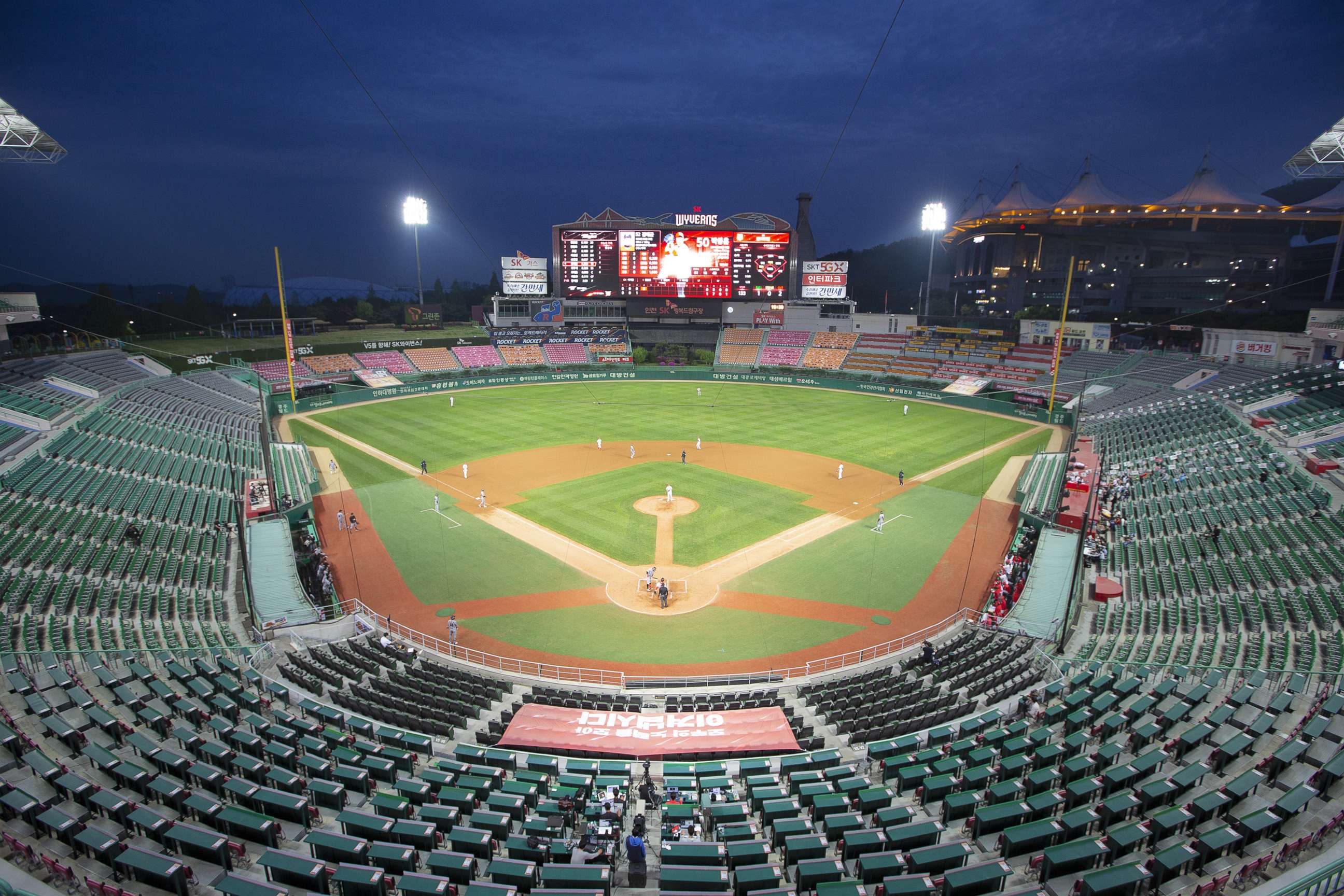
The public is not allowed to enter the stadium. For now, pictures of fans and characters wearing masks fill the empty stands.
The Korean soccer league is also preparing for its season opening on May 8 without an audience. The Korea Football Federation conducted COVID-19 tests on 1,142 people including all players, coaches and staffs in twenty-two K-league teams.There have been no confirmed positive cases, as per a press release.
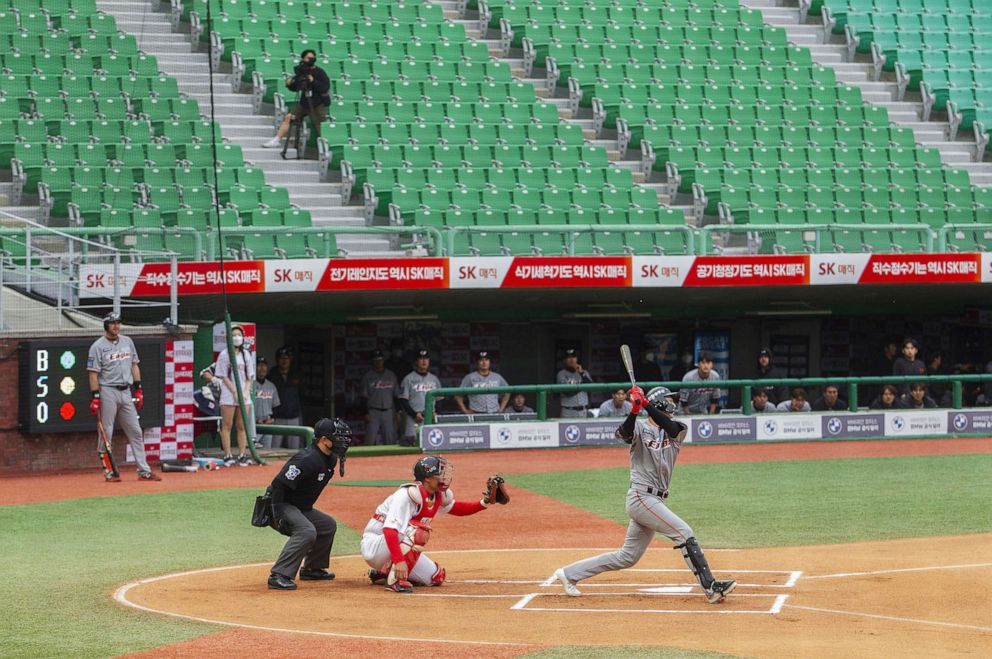
Players, coaches and staff will have their temperature checked three times before entering the soccer stadium -- the day before, the morning of and immediately prior. All participants must wear face masks except for the players during the training and the game, and players will not share water bottles and towels.
For the first time in a world-class golf competition, the Korea Ladies' Professional Golf Championship (KLPGA) will take place starting May 14 with no audience.
What to know about coronavirus:
- How it started and how to protect yourself: Coronavirus explained
- What to do if you have symptoms: Coronavirus symptoms
- Tracking the spread in the U.S. and worldwide: Coronavirus map
